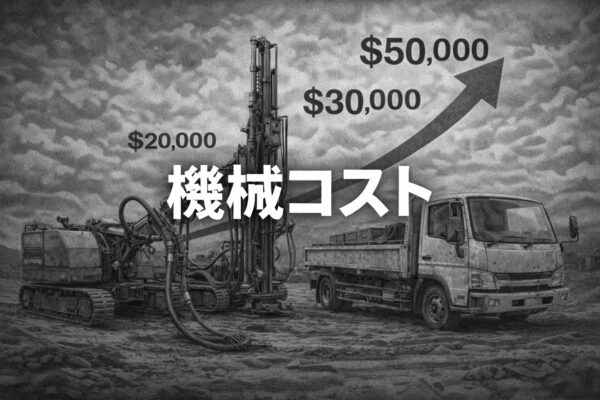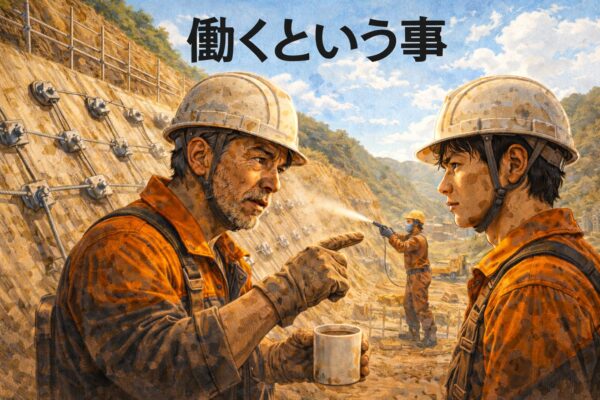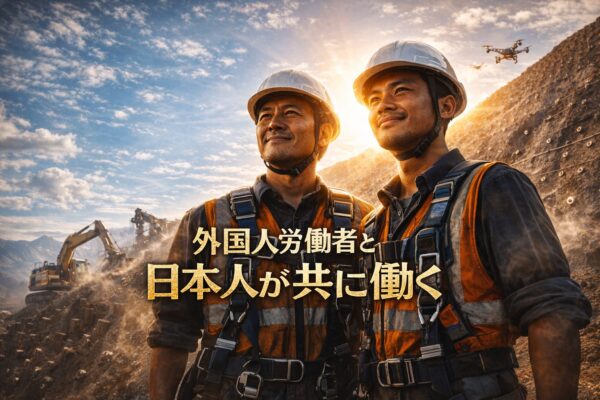Hello everyone,
This is Enta.
This time, I’d like to write for technical trainees and foreign workers.

Japan Becoming Dependent on Foreign Labor
In today’s Japan, under the government policy of Work Style Reform, many companies have adopted a complete two-day weekend system.
Especially for contractors engaged in public works, the two-day weekend system is already nearly universal.
However, in 2021, the government announced a goal of shifting to a three-day weekend.
Of course, it’s just a target—but if that really happened, the economy probably wouldn’t function properly.
The Labor Shortage and Foreign Workers
Right now, Japan is suffering from a labor shortage and is rapidly accepting more foreign workers.
So, what will happen to Japan in the future?
And what do technical trainees and foreign workers think about it?

The Future I See
I believe that in the near future, 99% of construction work will be carried out by technical trainees and foreign skilled workers.
That future is certain, because the number of Japanese workers is steadily decreasing.
For the time being, sites will still be supervised by Japanese people—but within the next ten years, this will change drastically.
Equal Opportunity for Skilled Workers
Those who can do their job well will be employed under the same conditions as Japanese workers.
Basically, the employment system today is already similar for both.
Some companies still discriminate, but such companies will eventually be eliminated.
If you see such injustice—report it boldly!
The New Blue-Collar Japan
In fields like civil engineering and construction, where we work, Japanese youth are increasingly reluctant to participate.
In a sense, this is a big opportunity.
Without technical trainees and foreign skilled workers, construction projects couldn’t even proceed.
Even in my own company, without foreign workers, we wouldn’t be able to handle many sites.
If you learn your job properly and work with the same standards as Japanese workers, you can be hired anywhere!
However, there are conditions:
-
Japanese language level N3 or higher
-
Driver’s license
If you also have good communication and management skills, you have the chance to even lead Japanese workers.
The Perspective of Employers
For business owners like me, if a Japanese worker cannot perform well, I would rather hire capable foreign workers.
Many construction company owners in Japan are beginning to think this way.

Time Decides Everything
However, Work Style Reform may actually make Japanese workers weaker (and foreigners too).
Let’s imagine this:
-
A-san works three days off per week, earns ¥300,000 per month
-
B-san works two days off per week, earns ¥300,000 per month
(Both are 35-year-old men with the same skill level.)
Most people would choose A-san’s schedule, right?
In fact, many Japanese people are already choosing this.
And to be honest, many Asian men would also choose A-san’s lifestyle! 😄
But what happens when both A and B turn 40?
A-san will end up becoming B-san’s subordinate.
Just one extra day off per week, four days per month—and that gap can never be closed.
🧮 Calculation Example
1 day = 8 working hours
1 year = 52 weeks
5 years = 260 weeks
A (3-day weekend) → 4 days × 8h × 260 weeks = 8,320h
B (2-day weekend) → 5 days × 8h × 260 weeks = 10,400h
Difference: 10,400 − 8,320 = 2,080h
In 5 years, A-san works 2,080 hours (260 days) less than B-san.
A-san’s life sounds great, right?
But… that’s all for today.
See you next time.








